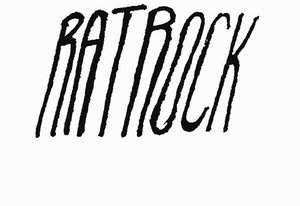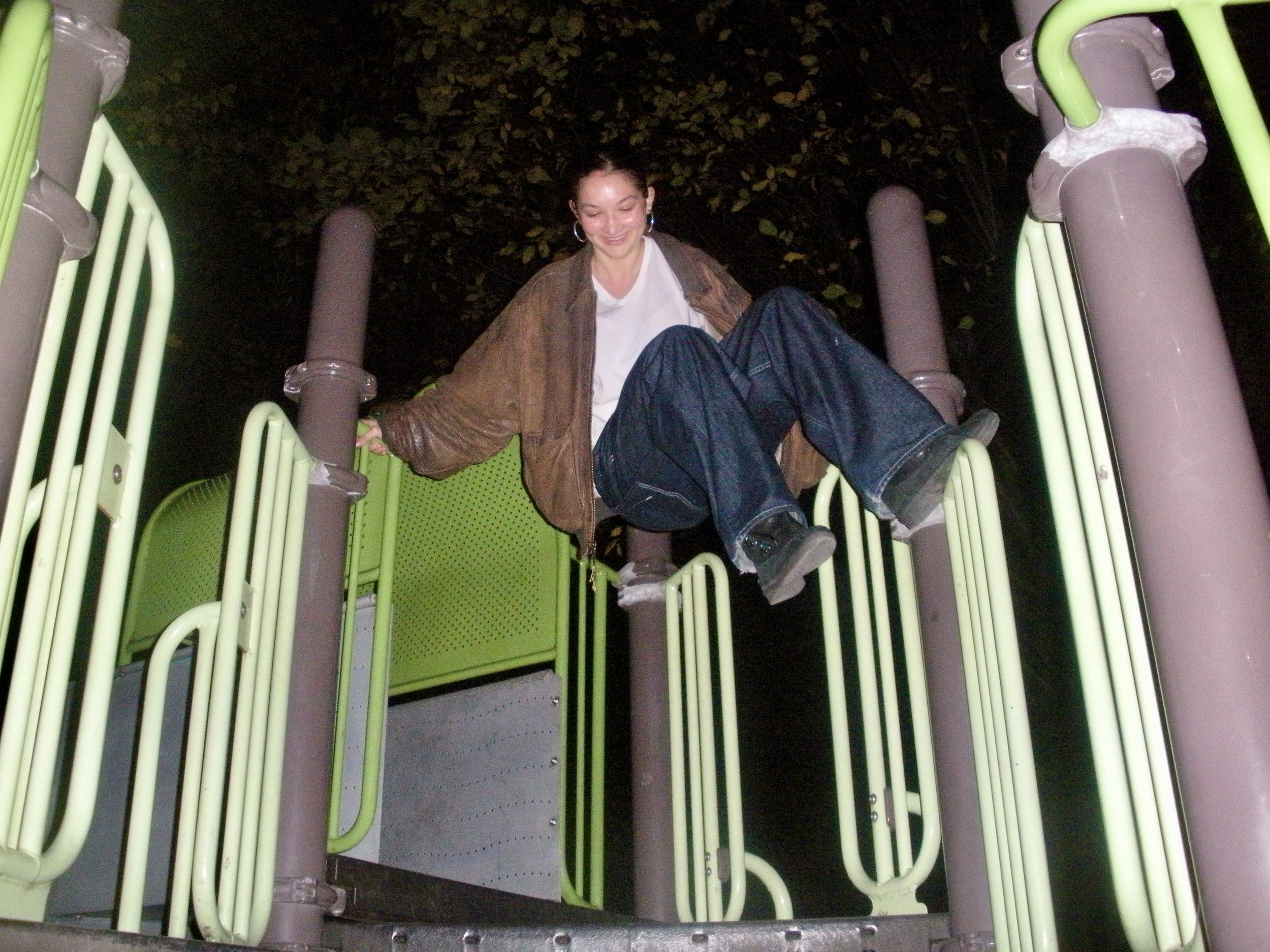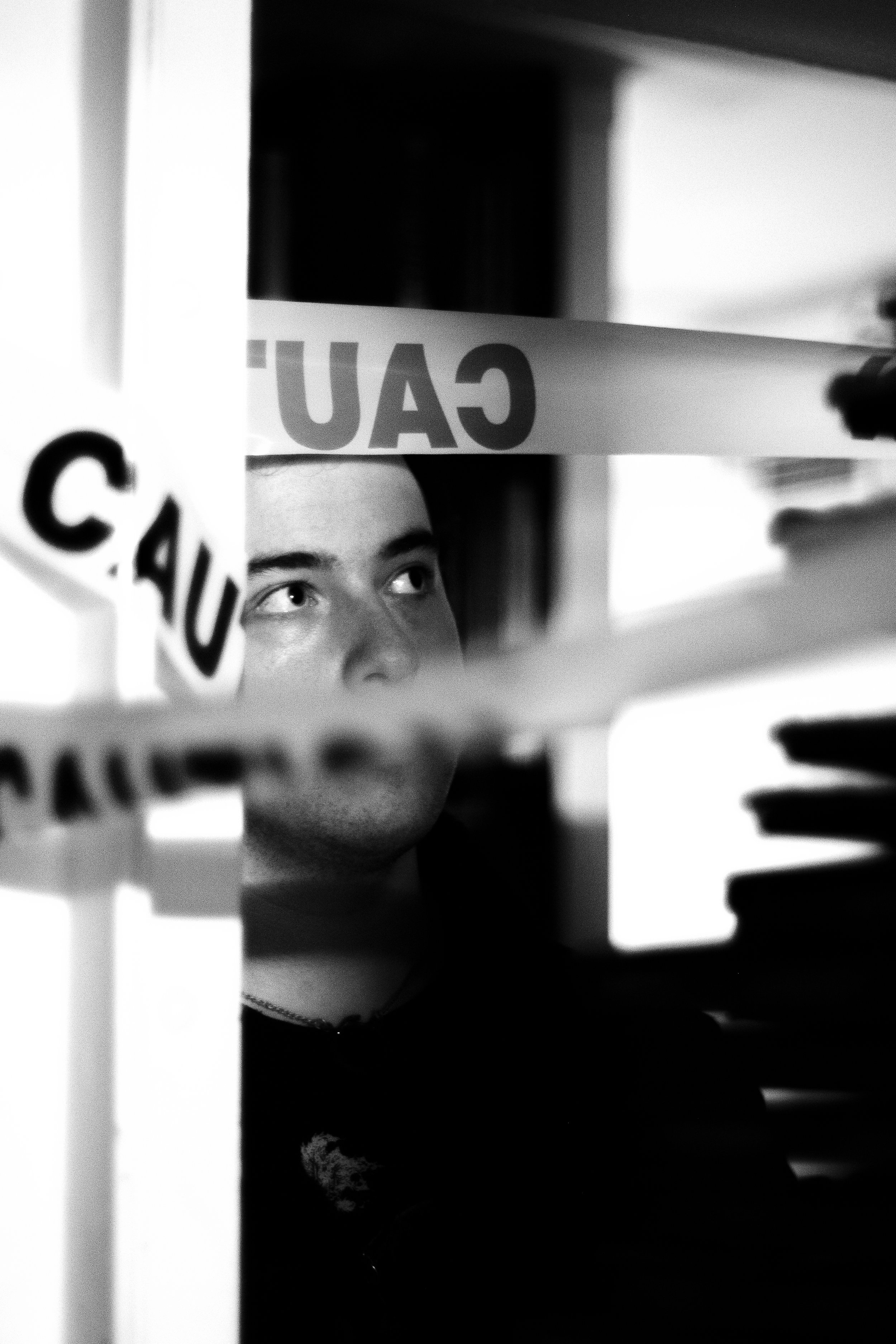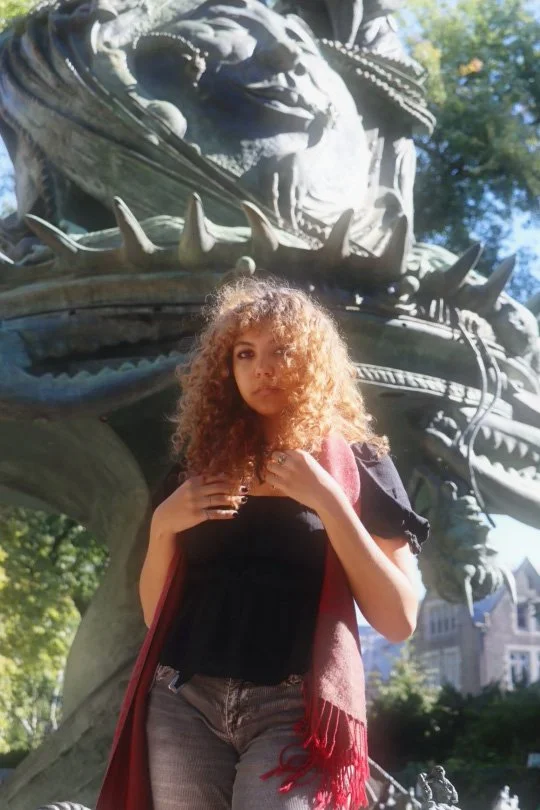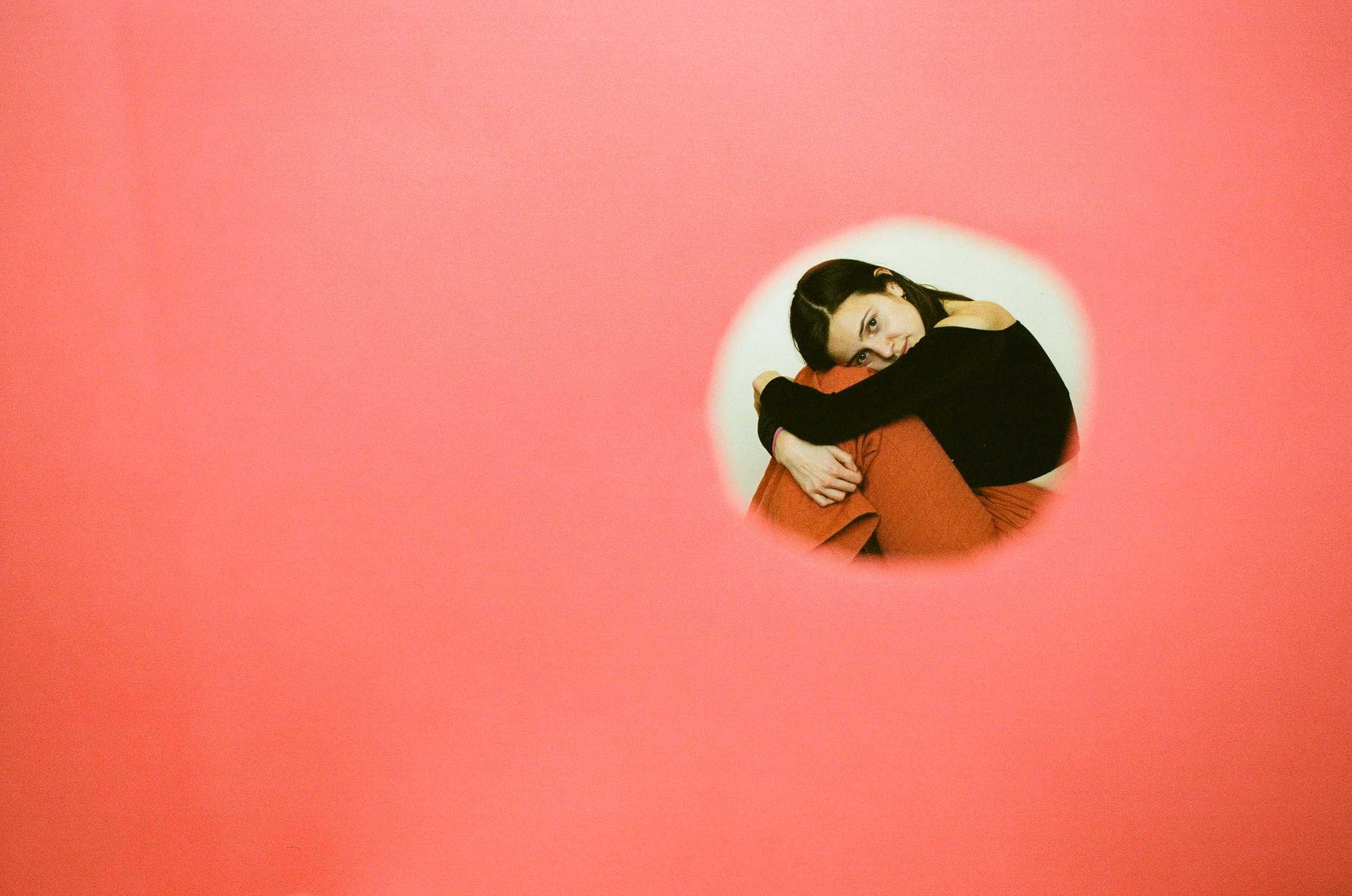
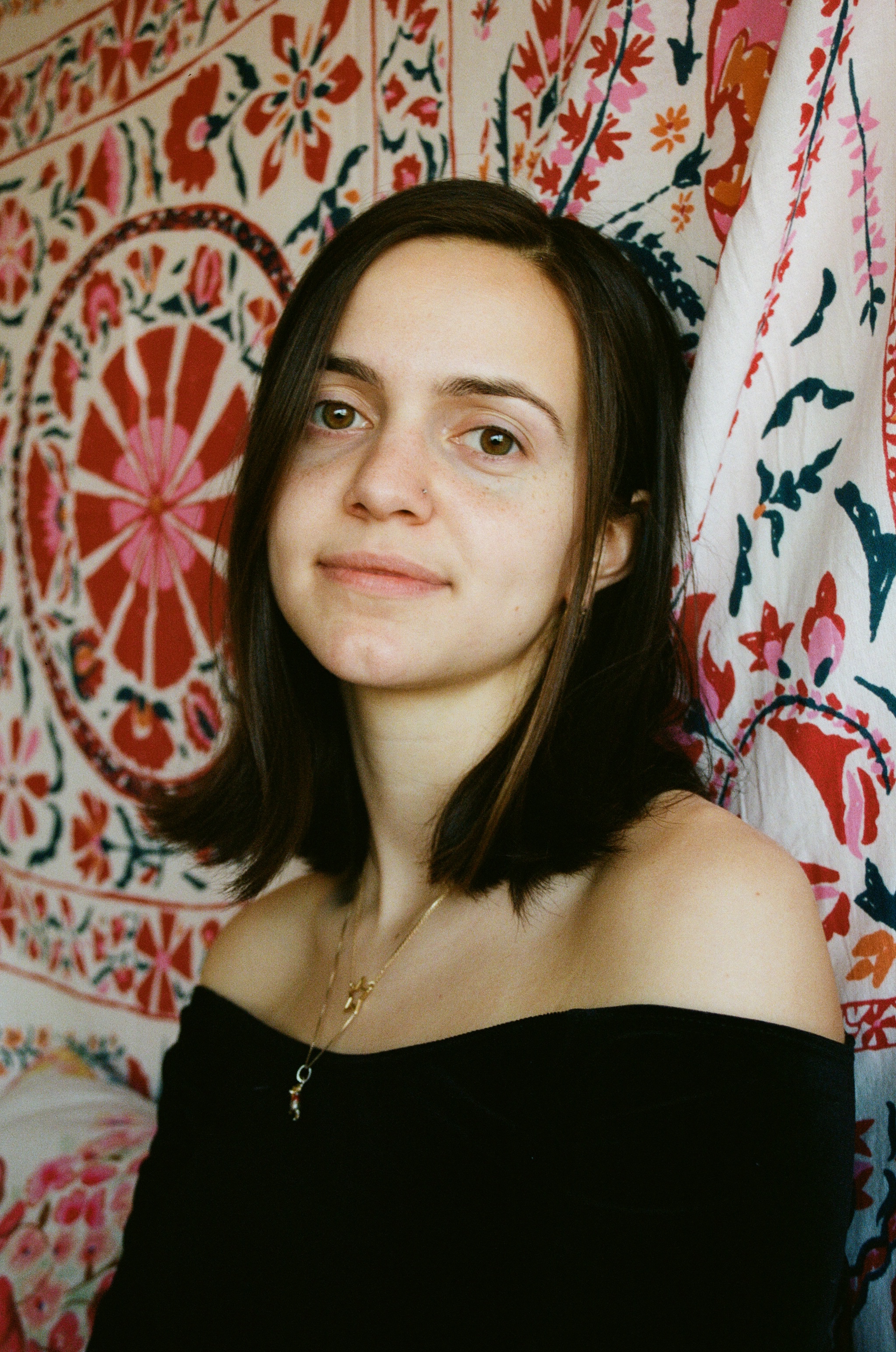
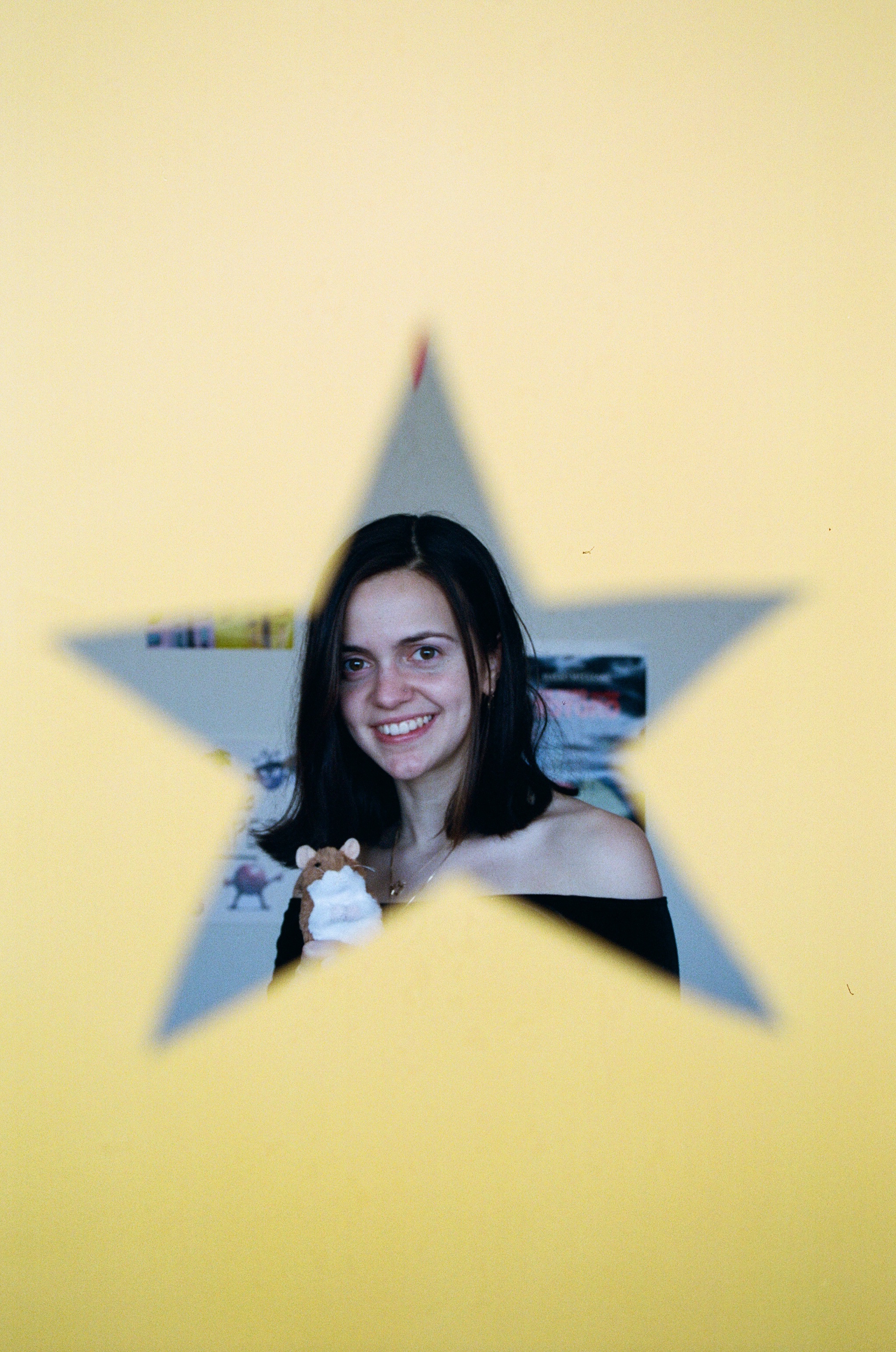

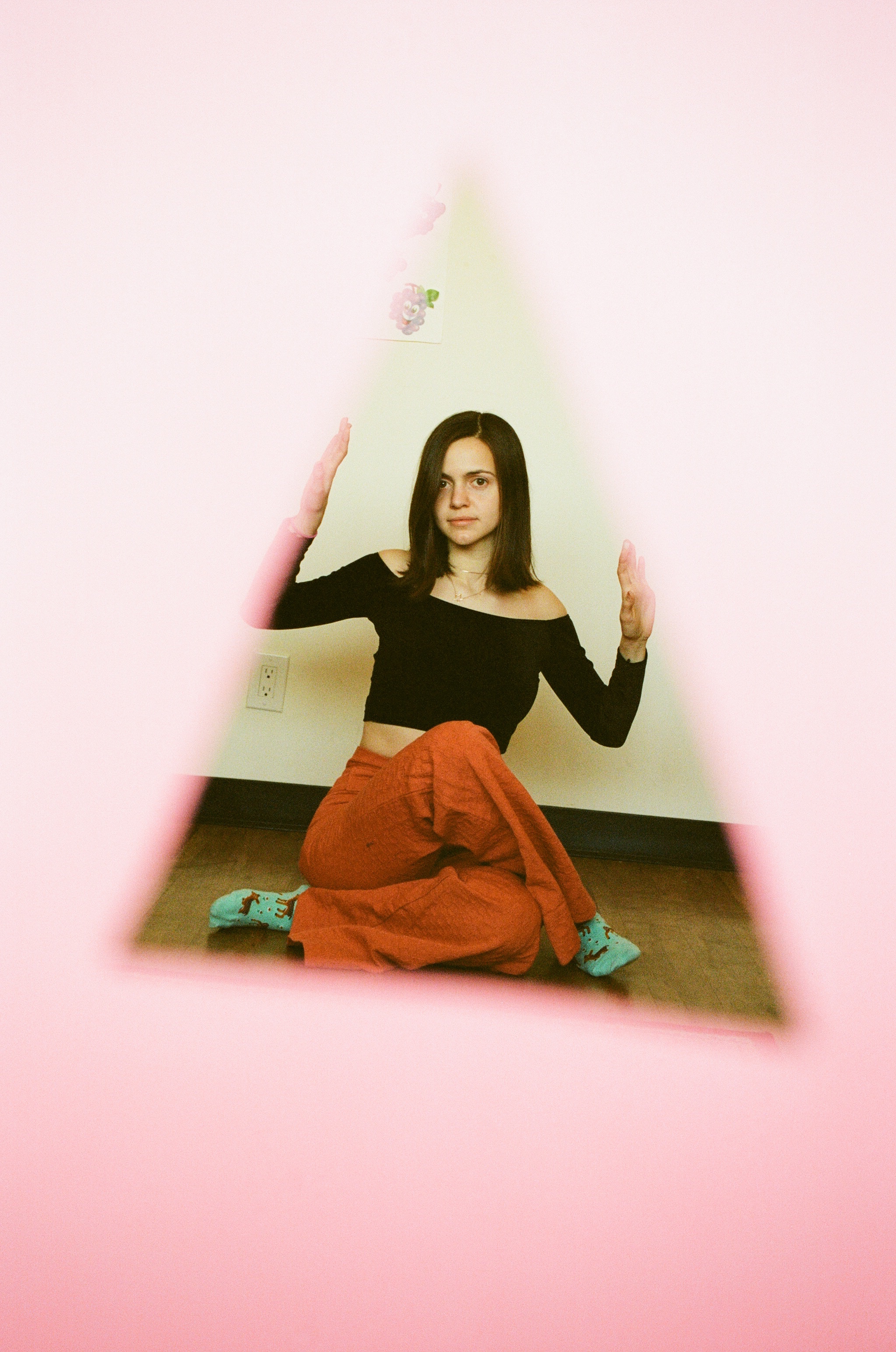
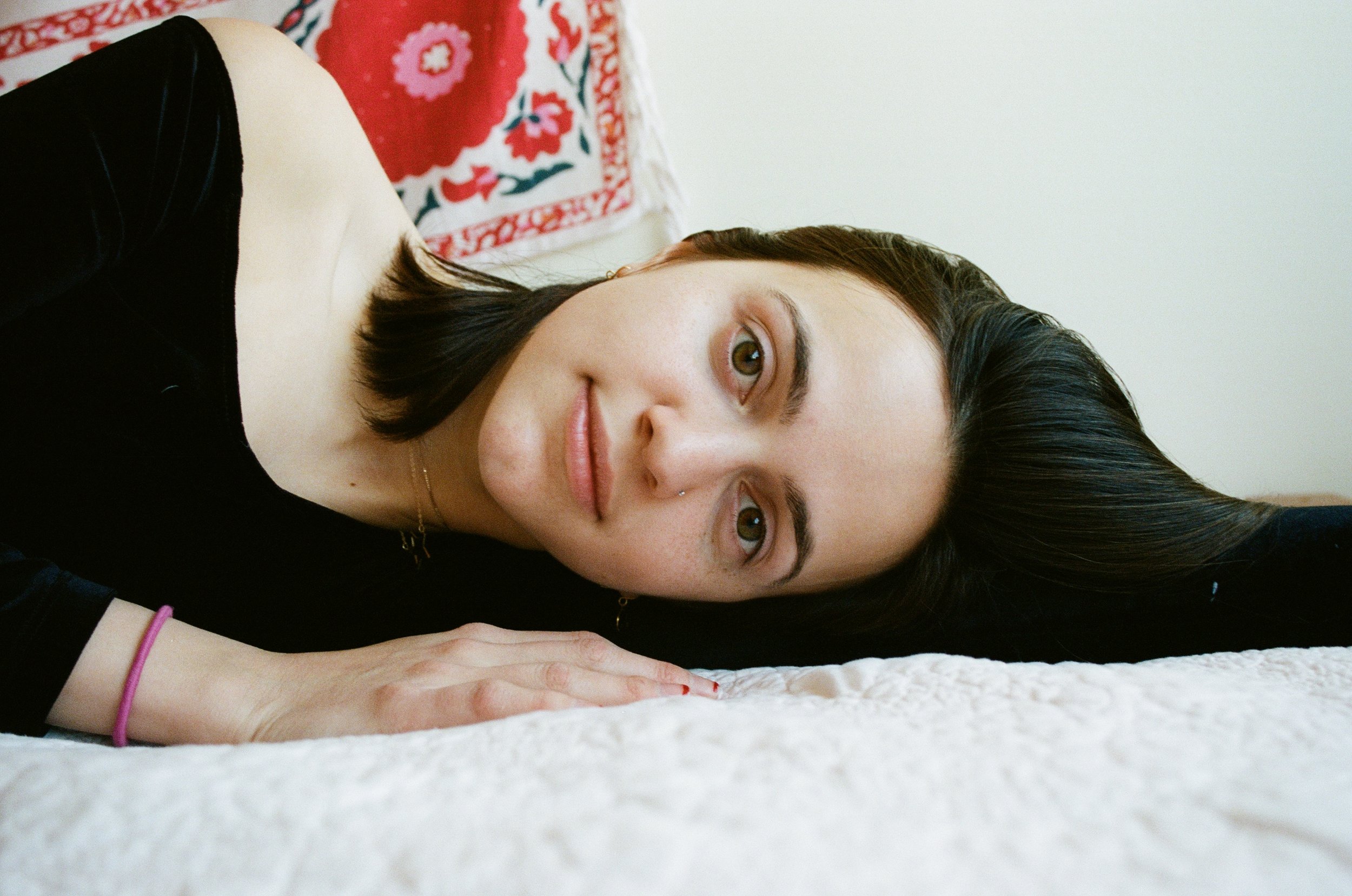
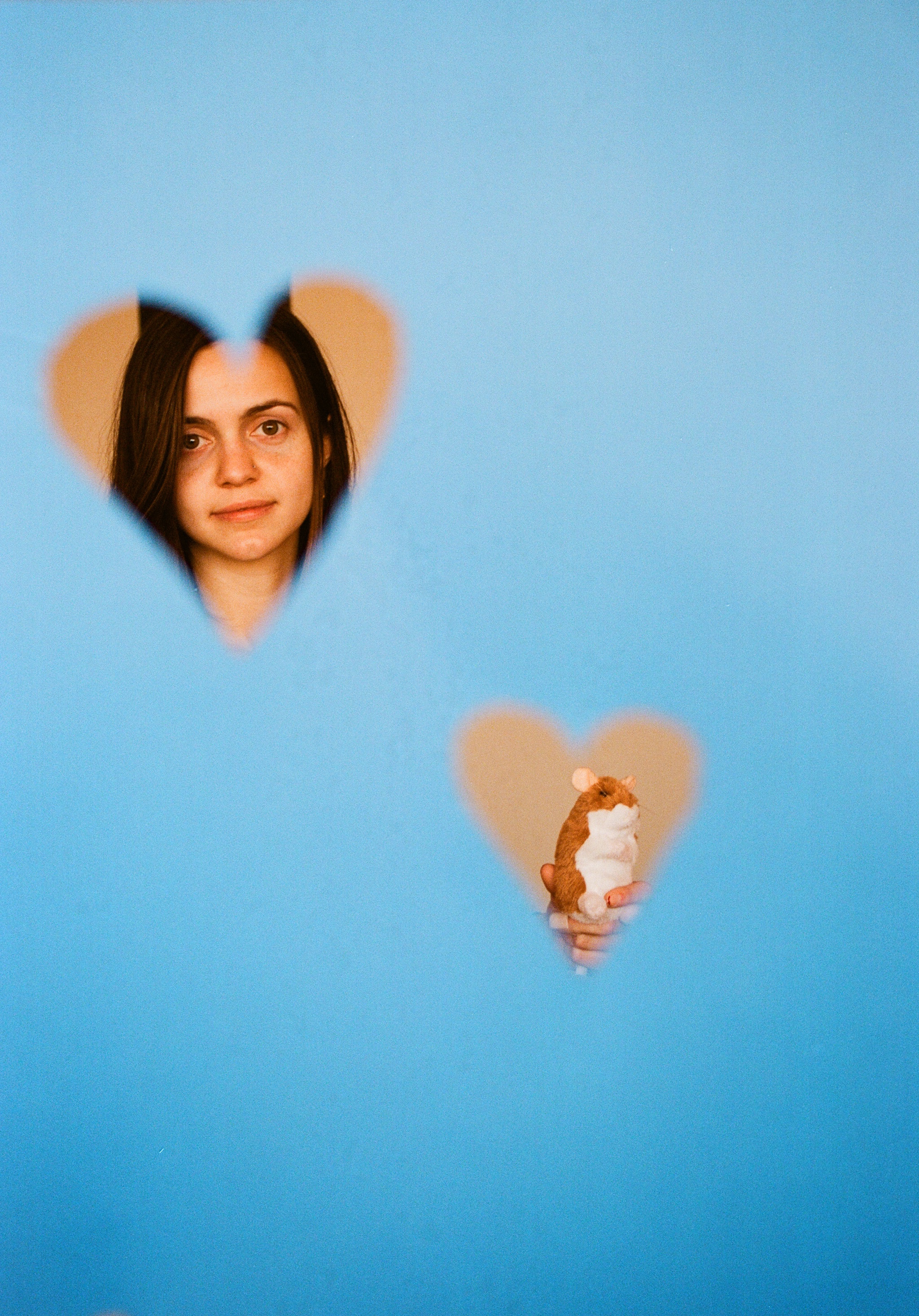
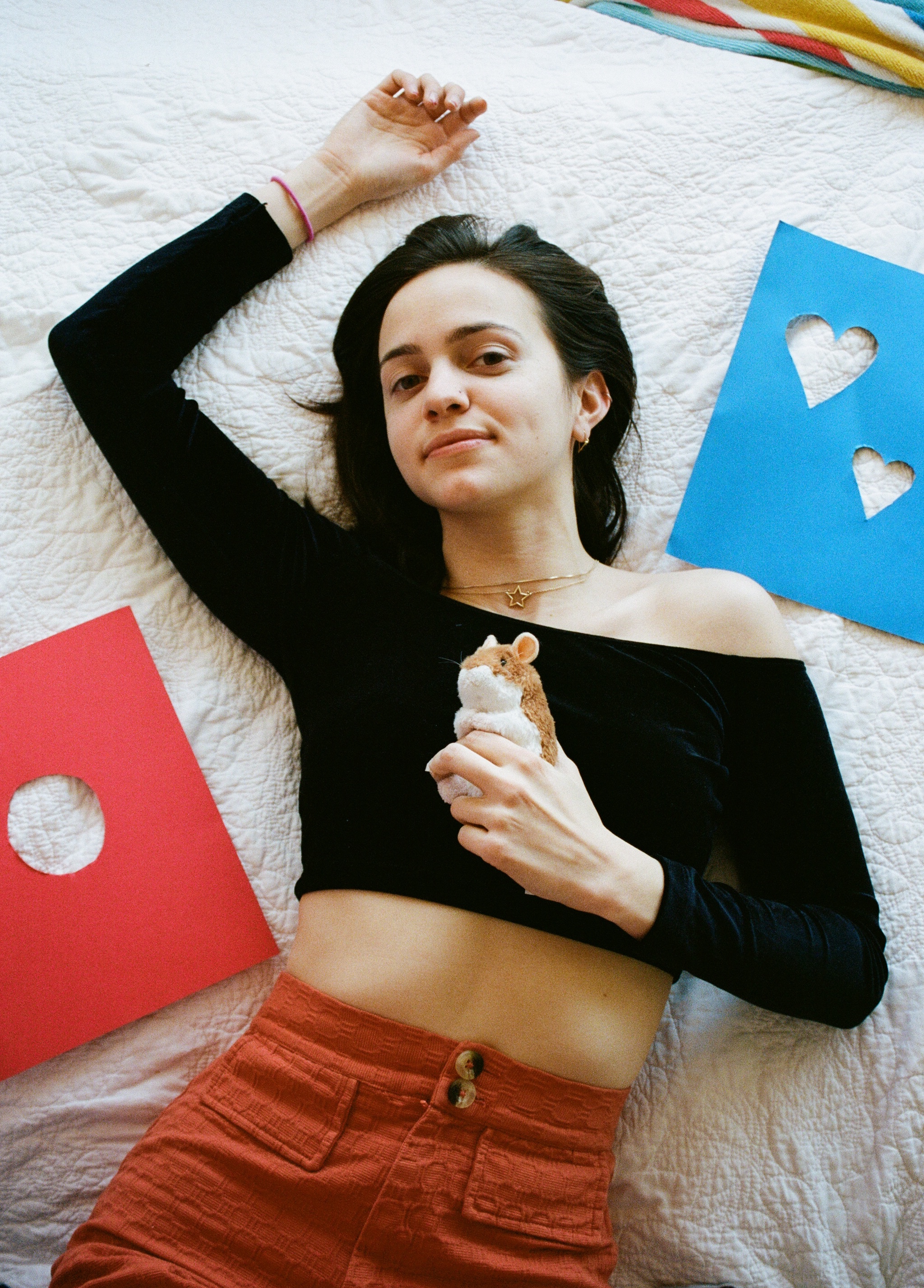
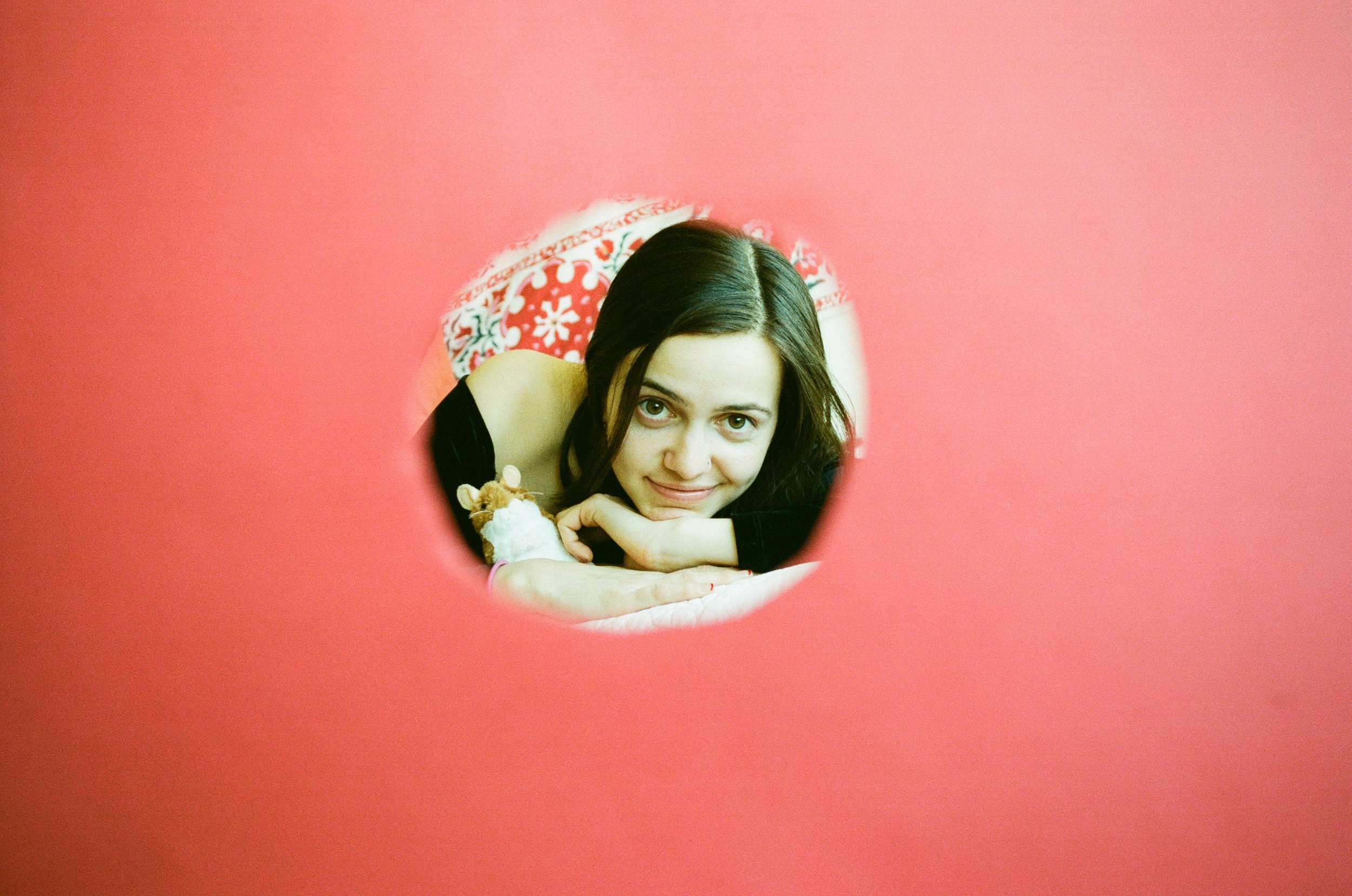
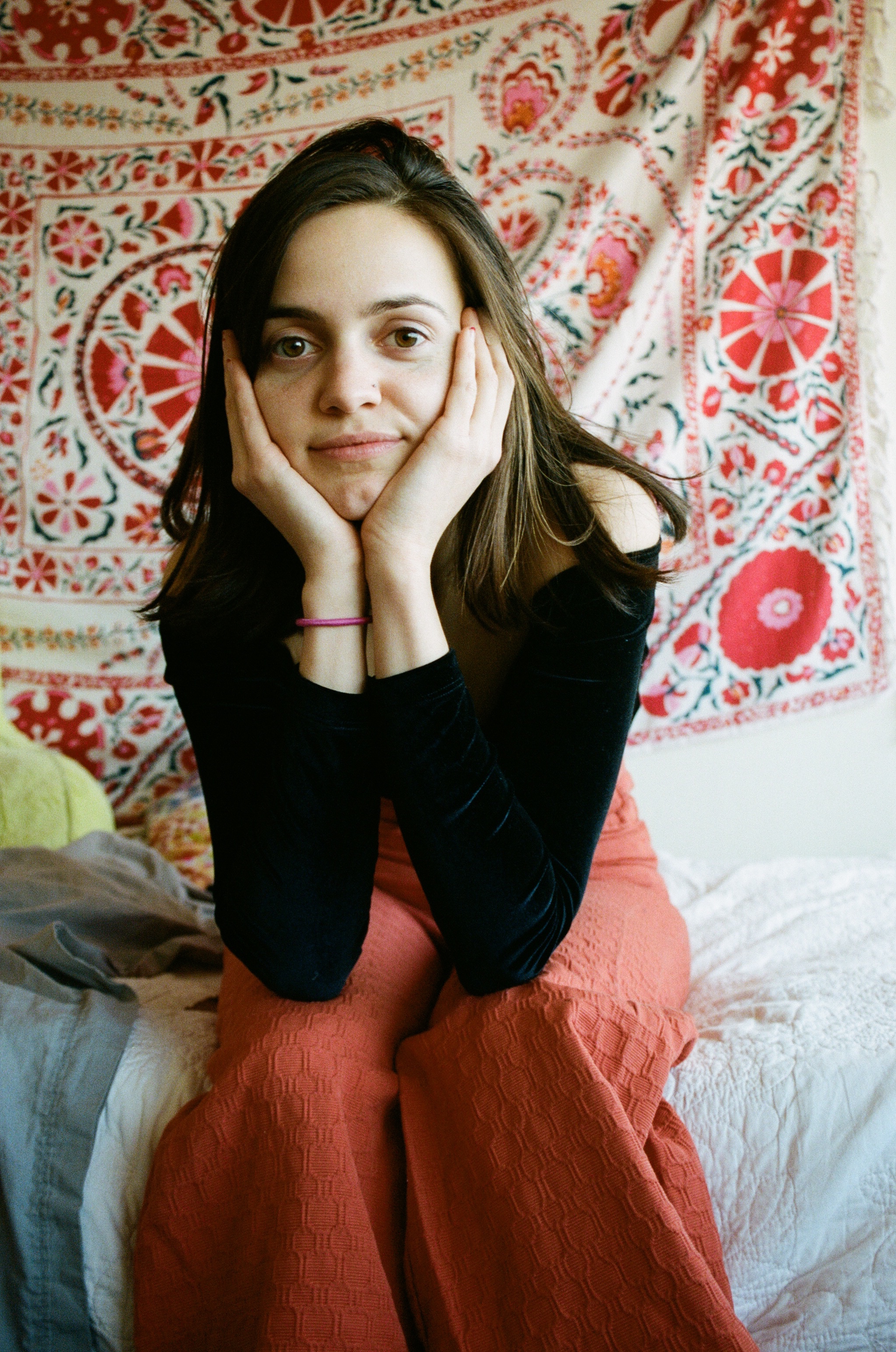
Photographed by Morgana Van Peebles
Interviewed by Courtney DeVita
Introduce yourself.
I’m Bernadette Bridges. I’m a senior in CC, and I’m studying creative writing.
Can you talk a little bit about your introduction to directing?
I used to be a double major in film. I transferred to Columbia from the University of Georgia, and my freshman year there I directed two short films and also had written a play that I directed in a New Works Festival. It was supposed to be a Samuel Beckett emulation, and I’m very embarrassed about the play now. Then I came to Columbia and directed a short film with the Society for the Advancement of Unrepresented Filmmakers. It was called “What She Created” and set to a score that my brother wrote actually. It’s poetry and dance based.
I have always acted, so I knew what theatre was like, but I always wanted to direct theatre. Acting is fun, but you don’t have that much agency and it’s interpretative more than creative. I was excited about the design elements of theatre because it’s performative and whimsical and there’s more room for experimentation.
My first directing experience in theatre was “Middletown.” I worked on that last year through Columbia University Players. The play has a lot to do with mental health, which is something that I think is really important to address and talk about. I wanted to take a show that’s a comedy, and create some sort of community among audience members and the people onstage and also the process of it. That in itself is the art. Then I directed some sketches with CU Sketch Show. I’m also directing the Varsity Show.
What is the process of directing the Varsity Show like?
The Varsity Show is a very different process because it’s being written as I’m directing it. So I’m directing scenes out of context without knowing what the show is really going to look like in its final terms. I know what the plot is, but I’m missing a lot of the details that come with the revision process.
It’s a lot of fun because I really like collaborating with people. I get to work a lot with the writers, the composers, the choreographer and everyone is really involved from our creative team. It is hard, because you’re juggling edits, but also treating everything as if it’s the final draft: giving the actors direction without confusing them. But also keeping in mind that the dialogue, characters, music, choreo - it all might change.
At the end of the day, it’s very freeing to know that it’s just student theatre. It’s supposed to be fun. No one’s ever gonna look back on a Varsity Show and be like, what a masterpiece. It’s a place where we can flop if we need to, and it will still have been a worthwhile artistic process.
Photographed by Morgana Van Peebles
How do you feel like you’re going to put your own stamp on the Varsity Show, since it’s a yearly tradition at Columbia?
Traditions can sometimes feel exclusive, so I wanted the show to be as inclusive as possible. I wanted to open it up instead of closing people out. We’re really trying to get as many people involved and let the Columbia and Barnard community in on the buzz rather than letting it seem closed off.
In terms of the creative side of Varsity -- not that that’s not creative -- my biggest focus coming from a film background to theatre, is lighting and design. I think you can say a lot with the design, and it’s a cool dialogue to have with the script and actors. That’s my favorite part of directing -- creating a space you couldn’t get anywhere else. You get to create a spectacle.
Where does your creative process start when you’re developing a show?
It’s been different each time. With “Middletown” I started with a lot of visual research. From there I began to mine the script for literal images in the text that would recur and try to think about those in the context of what they mean for the characters and how they may strike the audience - visually or emotionally. I also thought about traditions in theatre - which ones I wanted to talk about. I think as a beginning director it’s helpful to use past theatre traditions as a source for discourse.
What I was trying to do with “Middletown” was push against Brechtian theatre. I don’t like the Brechtian style - Epic Theatre. It’s a call to action but it’s impersonal. With Brecht, the characters aren’t important they’re just these archetypes. “Middletown” uses this same idea in the script, because the characters are all named after their jobs, like Cop or Mechanic. It’s set up like a Brechtian show but then it disassembles because the characters all have these beautiful monologues and are granted individuality. Within the realm of mental health and then also being an American, a citizen, it’s important that people aren’t just objects. People are individuals and that in itself can be a call to action.
How do you feel like your work engages with the Columbia community?
My biggest goal is to just be someone who people want to work with. So that the other collaborators feel happy and comfortable. Feeling like you can create something together in a place that makes you happy and excited is more important than productivity.
Through transferring I’ve learned that Columbia is a very specific community, focused on goal orientation and productivity. But something that I appreciate in the projects that my friends and I’ve been doing in the arts community on campus is that we’re allowed to just be trying things and creating a community where people feel happy - where we can strip away from the idea of adding another bullet point to the resume.
Photographed by Morgana Van Peebles
What are things that have been inspiring you lately?
I really like Edgar Wright, who’s a comedic director. My brother and I watched a lot of his work over winter break. He directed “Scott Pilgrim vs the World” and also “Hot Fuzz.” “Hot Fuzz” is a comedy about these cops in England and it’s just really such a great movie. It’s funny because I don’t write a lot of comedic poetry – if you write comedic poetry I bow down to you. I guess comedy is inspiring because it points out the absurdity of...most everything.
In general, I find a lot of inspiration from country music. I’m from Atlanta so I’ve inherited an Atlanta-n appreciation for both country and hip hop. There’s something cool and lonely about country music. There’s so many different sub-genres of country, and it’s all stems from the blues, which I guess is the saddest musical genre. But then country is somehow subverted, so people think it’s inherently sunny and happy. At the end of the day, you can’t extract that sadness from country music. It addresses sadness - either explicitly or implicitly - because it’s about monotony. That’s something I really like. Thinking about the smallness of everyday life and how that can be sad but also absurd. Nothing’s ever just sad; it’s sad but it’s also funny.
Is your approach to writing poetry different than your approach to playwriting?
It is a little different. With my poetry I have this weird journal of words and phrases and randomly collected definitions. I think the way we define the world is really interesting, the words we use to define another word; it’s all just words. That’s something I like to record, the definitions people give me or that I find somewhere. From there I’ll go through and skim the page and look at it and then I’ll flip the page and write down what I thought I saw rather than what’s on the page. For poetry, I also read a lot. My poetry is mostly inspired by other writing. All the other genres I work in are usually inspired by visual mediums. Art or movies.
You talked a little bit about growing up in the clash of cultures in Atlanta. How do you think your identity and where you grew up comes through in your work?
It’s nice to be in a city that has different demographics. There’s a lot of diversity, not just racially, but socioeconomically. Also diversity of identity: people have lived so many different types of lives which is something I’m grateful for. I often think about the individual and what it means to be inside a body. I think you can’t really know what it’s like to be an individual if you haven’t experienced or met a lot of people. A lot of people that aren’t like you. That’s something that Atlanta does. There’s also so many cultures coming together there. Atlanta’s a nice hub for creativity.
Photographed by Morgana Van Peebles
How do you think your work and writing changed when you came to the Columbia community?
At UGA I wasn’t writing as much, and just wasn’t as committed to it. All my life I’ve been trying to mimic other writers which is I think a common practice that helps you find who you are. But I think the writers that I am influenced by have changed a lot because my values have changed. A lot of young people when they are working in the arts really value intellectualism. As I said earlier, I was really into Samuel Beckett -- things that are straight up boring. I think I’ve opened myself up to enjoy life and its expressions more. Art can be entertaining and still be art.
What are you working on now, short term and long term?
I’m doing the Varsity Show right now. I’m applying to jobs and fellowships. I’m going to take a year off between undergrad and grad school - so if I don’t get a fellowship I’ll just be trying to save up some money. I’ll most likely apply to grad school for poetry. My brother is in film school so during the summer we’ll hopefully be together to work on a creative project.
Last question. What was your favorite book as a child?
Tuck Everlasting.
